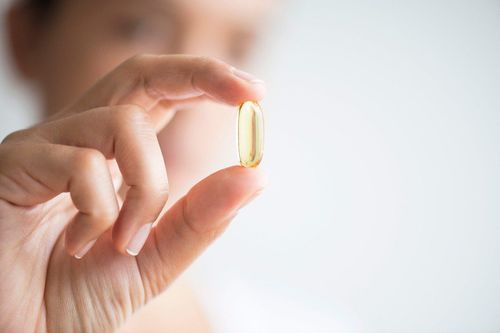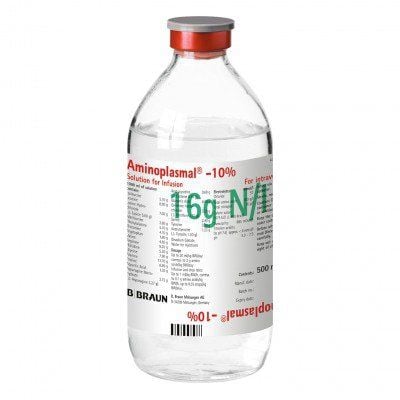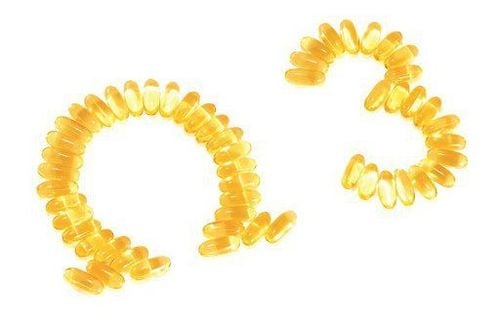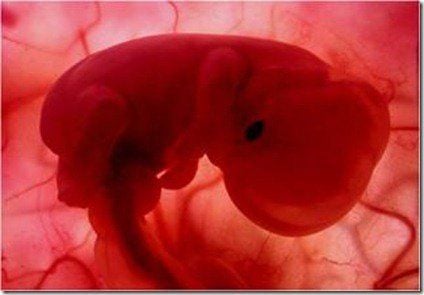This is an automatically translated article.
The article was consulted with Doctor Bui Duc Hoan - Department of Obstetrics and Gynecology, Vinmec Nha Trang International Hospital.During breastfeeding, a mother needs to eat enough, drink enough, and get enough sleep. The mother's diet needs to be higher than normal to ensure good quality milk for the baby to develop.
1. Diet for postpartum women
1.1 Need for protein (Protein) Postpartum women need a higher amount of protein than the average person. This need is obvious because the mother needs to have good health and enough nutrition for good milk and fast growth of the baby. Specifically, within the first 6 months, it is necessary to eat an additional 19 grams/day, bringing the total amount of protein needed for 1 day to 79g; in the next 6 months, need more 13g/day, total protein for 1 day is 73g. Should balance between types of protein, the amount of animal protein should be ≥ 30% of the total amount of protein needed to provide the body.
Foods with high protein content such as meat, fish, eggs, milk, beans... should be provided in daily meals. The content of some commonly used foods is as follows: 100g of meat/fish provides about 20g of protein, 100g of tofu provides about 10g of protein. Some types of fish with high DHA content need to be supplemented in the diet. Daily diet such as salmon, sardines, herring, mackerel, fatty fish, seaweed, seaweed... helps children's nervous system and eyes develop well. Postpartum women should eat fish at least 3 times a week. In addition, to stimulate digestion, it is recommended to store fish meat with fresh turmeric or ginger. Traditional dishes such as: Porridge with sticky rice, roasted sesame seeds with salt, eaten with sticky rice, has the effect of stimulating milk secretion. .

Cháo chân giò giúp gọi sữa sau sinh
Should drink 6.5 units of milk/day (drink milk or eat dairy products such as yogurt, cheese). Industrial milk contains many vitamins, minerals, proteins and fats with the same structure as breast milk, but mostly lacks or does not contain antibodies, no living cells, no growth factors. growth, no enzymes or hormones.
In contrast, formula milk contains more protein than breast milk, and that is a bad thing. Therefore, mothers should also consider in choosing the right type of milk.
1.2 Demand for fat (Lipid) Should choose foods containing a lot of long-chain polyunsaturated fatty acids such as n3, n6, EPA, DHA (found in some vegetable oils, fish oils, some fatty fish). This amount of fat is important for your baby's brain and vision development. The amount of fat eaten needs to provide 20-30% of the dietary energy, every 1g of fat will provide about 9Kcal of energy.
1.3 Vitamins and Minerals Vitamins and minerals are essential during breastfeeding. Green vegetables (legumes, bean sprouts, melons, spinach, radishes, carrots, potatoes, taro, wood ear, lotus root,...) and fruits (grapes, apples, peaches, etc.) , pineapple, banana pepper, persimmon,...) not only avoid constipation but also contain provitamin A good for baby's eyes. In addition, some fruits such as banana and pepper have the effect of reducing nervous tension, medlar increases appetite, promotes uterine contractions, ...
Should be exposed to the sun every day for 20-30 minutes Vitamin D deficiency prevention, vitamin D will absorb calcium well. Supplement iron and vitamins at least 1 month postpartum and in the daily diet.
1.4 Water needs To produce enough milk, nursing mothers need to be adequately hydrated, averaging about 2.0 – 2.5 liters of water per day (equivalent to 12 to 15 cups of water). Limit carbonated soft drinks, coffee, stimulants such as beer, alcohol and smoking.
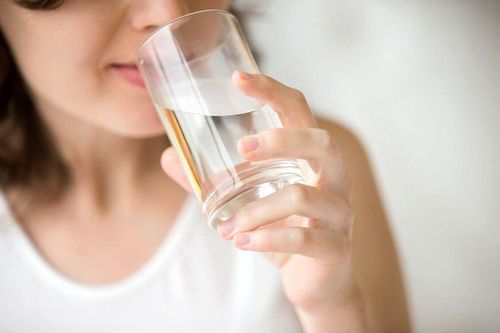
Nhu cầu về nước đối với mẹ bầu vô cùng quan trọng
1.5 Energy requirements If compared in the same age group and the same level of physical activity, the energy requirement of a nursing mother will be about 500 Kcal higher than that of a normal woman (not yet). pregnancy and when not breastfeeding). This energy is equivalent to about 3 bowls of rice. Maternal energy requirements during lactation also depend on physical activity status and weight gain during pregnancy.
Mothers before and during pregnancy gain weight from 10-12kg: Need to ensure energy needs reach 2260 Kcal/day for light workers and 2550 Kcal/day for average workers. The mother before and during pregnancy has a weight gain of less than 10kg: Need to try to eat a lot and variety of foods to ensure enough energy needs while breastfeeding. After giving birth, mothers should exercise gently to prevent venous thrombosis. Maintaining the mother's spirit to be comfortable, confident to avoid stress, sadness, anxiety, insomnia also helps the mother in increasing milk production. In addition, it is necessary to balance between work and rest regimes.
2. Some notes in the daily diet
Limit the use of drugs because some drugs can pass through the milk and cause poisoning for babies and reduce lactation. Limit spicy foods such as chili, onions, and garlic because they cause an unpleasant smell, and the baby easily refuses to breastfeed. Do not over-diet. Avoid raw, fatty, spicy, irritating foods. Do not eat too many sour and cold fruits, to prevent acid from damaging your teeth and your stomach being irritated by cold foods. Absolutely abstain from alcohol and tobacco during lactation. For mothers with high blood pressure during pregnancy, it is necessary to limit salt intake. Mothers who have perineal tears and need stitches should eat low-residue foods, divide meals into 5-6 times/day, eat for 3 days. Mothers who have to have a caesarean section: A diet from liquid to solid can be applied. After you can defecate on your own, you can return to normal mode. After giving birth, women need to have a basic diet with enough quality and plenty of water, to avoid excessive examination. If the mother is anorexic and has little milk, she needs to be examined early to avoid affecting her health as well as her breast milk. For nutritional examination and advice, you can contact Vinmec International General Hospital to be assigned specific treatment by doctors for each case.
Please dial HOTLINE for more information or register for an appointment HERE. Download MyVinmec app to make appointments faster and to manage your bookings easily.




